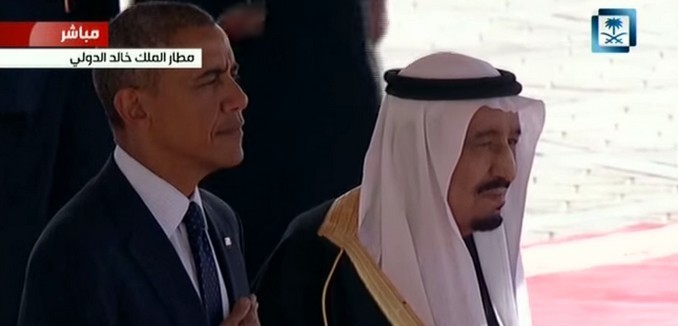America’s Arab allies are increasingly concerned about the emerging nuclear deal that the West has reportedly prepared with Iran, The Wall Street Journal reported (Google link) Friday.
The direction of U.S. diplomacy with Tehran has added fuel to fears in some Arab states of a nuclear-arms race in the region, as well as reviving talk about possibly extending a U.S. nuclear umbrella to Middle East allies to counter any Iranian threat.
The major Sunni states, including Saudi Arabia, Egypt, the United Arab Emirates and Qatar, have said that a final agreement could allow Shiite-dominated Iran, their regional rival, to keep the technologies needed to produce nuclear weapons, according to these officials, while removing many of the sanctions that have crippled its economy in recent years.
Arab officials said a deal would likely drive Saudi Arabia, for one, to try to quickly match Iran’s nuclear capabilities.
The Journal quoted one Arab official, who has been discussing the Iran deal with the United States and Saudi Arabia, as saying, “At this stage, we prefer a collapse of the diplomatic process to a bad deal.” The Journal reported that the administration initially sought to “completely dismantle Tehran’s nuclear infrastructure” to protect America’s allies in the Middle East, but now believes that “it is no longer plausible to eliminate all of Iran’s nuclear infrastructure.”
While the administration has been emphatic in the past that “no deal is better than a bad deal,” America’s allies have been concerned for a while that the emerging deal would be a bad one.
An analysis that appeared in Farsi on the website of Iranian Supreme Leader Ayatollah Ali Khamenei asserted the that the administration is, in fact, ready to make a bad deal. The translation below was provided by Iran Front Page:
The US strategy used to show itself in efforts to re-extend the talks and buy time in order not to lose the Geneva deal. But the Supreme Leader’s remarks last week and his stress on a one-stage agreement which encompasses both general and detailed outlines put the Americans in a quandary. The Leader has also ruled out a multi-phase agreement as well as a [general] diplomatic agreement before agreeing on the details. …
It is no secret today that for Obama, his colleagues and fellow Democrats, a bad deal is better than no deal.
[Photo: CCTV America / YouTube ]




